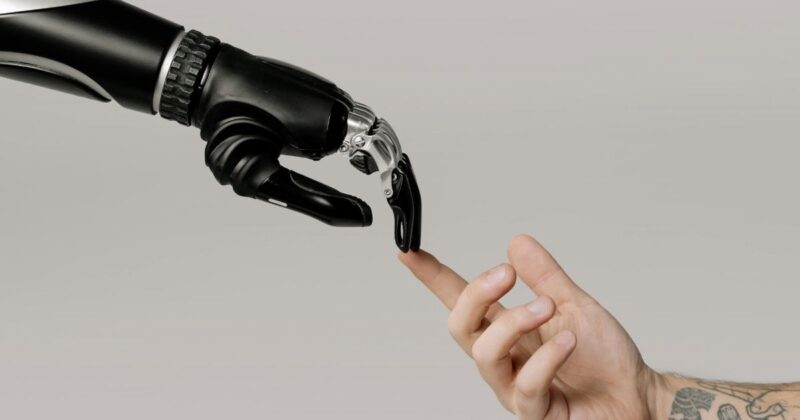There’s no question that we’re truly in the ideal and best time for technology. With continued incredible leaps with the internet alone, within minutes, if not seconds, the average person can post self-made videos, engaging blog posts, and hilarious memes to share with the world. Running neck and neck for dominance and growth is AI, which has plenty of tools and intricate libraries. The entertainment industry is one of many sectors that continue integrating AI to take their platforms to new and more entertaining levels.
The Role of AI in Entertainment
Gaze at a blog post or a movie poster, for example; chances are you are looking at AI-generated images. With AI’s tentacles in so many areas, content creation, including dynamic, continues to prove how invaluable AI is for the entertainment sector.
AI’s Role in Content Creation
Are you a script writer trying to write a hard-hitting and entertaining scene but have writer’s block? No problem. Thanks to AI’s powerful learning tools, writing treatments for new television shows or entire movie scripts just became an afterthought. And suppose you don’t know where you begin with the first scene of your movie script. In that case, AI is so sophisticated that it can take inputted suggestions and cross-reference them with similar ones in its data banks to auto-generate the blueprint for the next Hollywood blockbuster and future award winner.
AI Takes Visuals to The Next Level
When watching a multi-million dollar film on the big screen or on your large flat-screen television, enhanced and razor-sharp graphics from each scene are expected. It’s also common to add CGI and other enhanced special effects to movie scenes, animation, and games. AI assists and suggests to graphics specialists how to best make the visuals or scenes pop.
AI’s visual effects technology has become so pronounced that it allows the average person to make their own deepfakes. With hefty budgets and looming deadlines, having AI as the extra editor, available 24/7, saves plenty on the budget and, most importantly, time. With enough programming, visual effects editors can even streamline their production and editing jobs to perform automatically.
Enhanced User Interactions
With today’s state-of-the-art online gaming platforms and streaming services, the need for more member interaction continues to mount. One key area remains customer support. Thanks to AI chatbots, the elite online entertainment sectors from Netflix, Steam, and casinos like BetMGM and Pulsz have AI chatbots on their frontline for customer support.

In ten seconds or less, a friendly chatbot is ready to answer your questions. With the programmed history and background of each member, your problems are usually resolved in five minutes or less, and you can return to your entertainment delight. Also, with AI, major entertainment companies can save tremendously on their budgets by hiring fewer human agents. AI chatbots can perform 24/7 with amazing efficiency, constantly improving with more cataloged member interactions and behaviors.
Superior Analytics Analysis and Gathering
Even if an entertainment company’s business model is working, there’s always room for improvement. While the goal is to gain new members, it’s also essential for entertainment brands to maintain their current membership levels. After all, if more members are leaving than are being replaced, then not only is the entertainment brand losing profit, but it’s on the fast track towards shutting down.
Thankfully, with superior AI analytics tools, these programmed models can use predictive analysis to see if there is cause for alarm and even make suggestions. Also, with AI analytics, entertainment brands can gauge audience reaction or engagement with films or other entertainment products and services. With these AI-enhanced analytics, those who make decisions can better gauge how to improve marketing ads and strategies and how to effectively budget them to improve their products.
AI Makes Things More Personal
One of the undeniable ways AI has impacted the service and entertainment industries is through more personal content. Today, cable or Netflix subscribers can use voice commands to interact with programs, like changing the channel. AI tools monitor and catalog these user behaviors to create dynamic suggestions for movies and more.

For example, if you can’t get enough of Western movies, AI movie guides can recommend similar Western films like 3:10 Yuma and High Noon. If you like cooking shows like Jacque Peppin, the content guides can recommend upcoming cooking shows you might like.
Conclusion
As technology like the internet continues to skyrocket, the need for more bandwidth and engaging entertainment content will grow. The major entertainment brands, including startup companies, will roll the dice with AI to create more personable and engaging content to stand out from competitors.
If the goal is to entertain, who better than the viewers and customers themselves to have a say in content? With enhanced behavioral AI tools, companies can take the feedback and utilize the suggestions for more enhanced material, guaranteed to thrill members.










